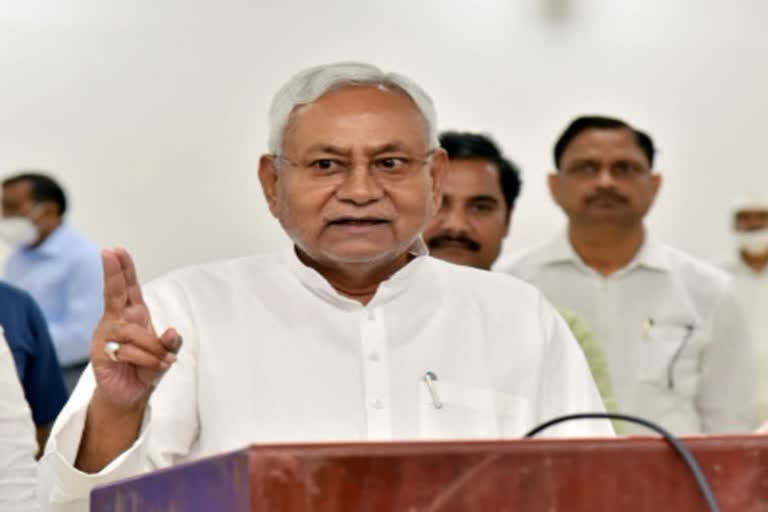Patna: The longest-serving chief minister of any Hindi- speaking state, Nitish Kumar seems to have acquired an aura of indispensability when it comes to the highest seat of power in Bihar. A crafty politician, he kept the BJP guessing till the eleventh hour before severing ties with the ally, following unanimous sentiments in his JD(U) that it was to be blamed for the party's dwindling fortunes.
Kumar then clinched a new deal in no time with the opposition which, bereft of power and coherence, welcomed him with open arms. In a political career spanning four decades, Kumar, 71, has kept at bay taints of corruption, nepotism and misgovernance, leaving critics with little except opportunism as a stick to be beaten with.
Born on March 1, 1951 in Bakhtiyarpur, a nondescript town on the outskirts of Patna, to an Ayurvedic practitioner-cum-freedom fighter father, Kumar is an electrical engineer by training. During his days at the Bihar Engineering College, now known as NIT, Patna, he became active in student politics and got associated with the JP movement', which introduced him to many of his future associates, including Lalu Prasad and Sushil Kumar Modi.
His first electoral success came in the 1985 assembly elections, which the Congress swept though he managed to win the Harnaut seat for Lok Dal. Five years later, he moved to Delhi as an MP from the now- abolished seat of Barh. After another half a decade, when the Mandal wave was at its peak and Prasad was reaping its dividends, Kumar sided with George Fernandes to float the Samata Party, which would later morph into the JD(U) and share power with BJP at the Centre and, 2005 onwards, in the state.
His first five years as chief minister are recalled with admiration even by critics, marked by vast improvements in restoration of law and order in a state that made headlines for massacres by rivalling militias and kidnappings for ransom. A product of the Mandal churn, the Kurmi leader also realised that he did not have the advantage of belonging to a populous caste group and created sub-quotas among OBCs and Dalits, who were called Ati Pichhda' (EBC) and Mahadalits, which was resented by the dominant Yadavs and Dusadhs (supporters of Ram Vilas Paswan).
He also gave patronage to Pasmanda Muslims which, besides his ability to keep Hindutva vigilantes in check, endeared him to the minority community despite an old alliance with the BJP. Kumar brought in measures like free bicycles and school uniforms for school-going girls, which won him much adulation and the exuberant public mood saw him returning to power in 2010, leading the JD(U)-BJP coalition with a landslide victory in assembly polls.
